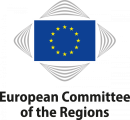Cities and regions step up their game to regulate online platforms and pave a safe way for SMEs into digital markets
The European Committee of the Regions strengthens its commitment to the EU's wide-ranging legislative project of reinforcing democratic control over dominant internet platforms and restoring a levelled online economy that works for SMEs and individual consumers alike. During the June plenary session, the Committee's members adopted an opinion which supports the European Commission's intention of tougher regulation of digital markets and services while at the same time highlighting the innovations and competencies cities and regions may bring to bear for a sound and effective regulation. The CoR's opinion on the Digital Services Act package is embedded into a broader net of initiatives aimed at sharpening the CoR's profile as one of the EU's drivers of an inclusive digital transformation.
The Digital Services Act package is a legislative proposal by the European Commission composed by two elements: the Digital Services Act (DSA) itself and the Digital Markets Act (DMA). The package includes an update and reinforcement of EU competition law to meet the demand of a sound platform regulation. It seeks to contain the market power of so-called 'gatekeeper platforms' that control smaller enterprises' access to consumers and act as private rule-makers. The package also seeks to counter the unrestrained spread of disinformation by enforcing platforms' liability for distributed content.
Platform regulation has a strong regional dimension. Many of the sectors in which online platforms play a dominant role – such as urban transport, housing, tourist accommodation and the delivery of public services – are regulated at the local and regional level. Local and regional authorities therefore hold a key position when it comes to designing and enforcing effective legislation: They dispose of information, experience and are the political layer closest to the concerned stakeholders.
Rapporteur Rodi Kratsa (EL/EPP), Governor of the Ionian Islands Region, said: "This opinion strengthens the voice of sub-national authorities and looks out for designing regulation with precision for greatest positive impact and avoiding creating new problems when solving existing ones. Digitalisation is a reality - only increasing with the pandemic - as is our dependence on digital infrastructure. We must protect SMEs who are often in a state of dependence on the bigger platforms and impacted considerably by losing access to platforms or services on which they increasingly depend for their enterprise."
Platform regulation also carries important implications for many SMEs. As more and more firms digitalise, their interactions with consumers, suppliers and other business contacts increasingly pass through the mediation of private online platforms – growing their dependency on these new actors and exposing their business models to risks and uncertainty. The CoR opinion argues for a strong legal framework protecting SMEs' direct access to consumers and thereby their ability to compete on equal terms. A claim that has also been confirmed by the results of a study on legal and political conditions needed to support traditional companies' digital transition, which had been discussed at a recent CoR webinar. The final study will be published in mid-July.
Another major concern of the CoR's opinion is mitigating and overcoming the 'double digital divide', caused by the unequal distribution of the prerequisites needed to reap the potential social and economic benefits from digitalisation: access to high capacity networks and digital literacy. To counteract territorial and social disparities and ensure digital cohesion, the CoR stresses the urgent need to support capacity-building at the local level and to accelerate the deployment of broadband infrastructure. These critical challenges are also regularly tackled by the CoR's Broadband Platform – a forum which has been established jointly with the European Commission to pool legal, technical and practical knowledge and speed up the development of solutions enabling all citizens, SMEs and public administrations to successfully navigate the online world.









